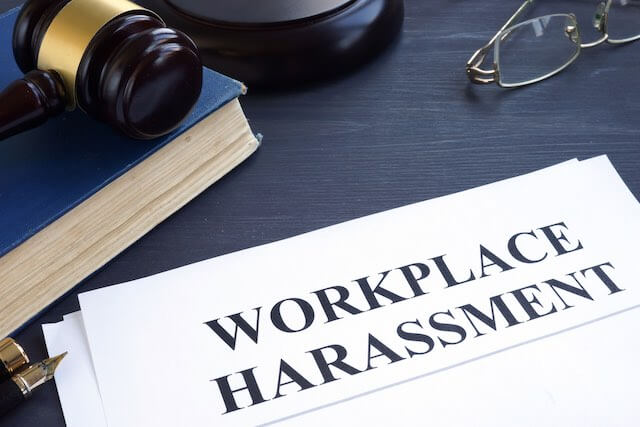In yet another recent case involving Department of Veterans Affairs (VA), and its new powers bestowed by a 2017 law, a housekeeping aid at Martinsburg VA Medical Center (West Virginia) was removed by the agency exercising its new streamlined disciplinary procedures. (Hairston v Department of Veterans Affairs (CAFC No. 2018-2053 (nonprecedential) 3/8/19))
Hairston got into trouble after only a few years on the job. First he was counseled for “refusing to do work as instructed and for willful idleness.” (Opinion p. 2) The union filed a grievance on Hairston’s behalf challenging the written counseling memo and demanding it be deleted from his record. Grievance denied. Hairston then filed an EEO complaint indicating that the counseling memo amounted to race discrimination.
Unfortunately for Mr. Hairston, he got into trouble a few weeks later by kissing a VA nurse who apparently did not welcome the kiss. When the incident was reported to management the next day, Hairston’s supervisor ordered him to not return to the unit where this nurse worked. When Hairston was spotted in the unit later that same day, the VA Police were called and an investigation was launched. The result was a notice of proposed removal for conduct unbecoming and failure to follow instructions. Following Hairston’s reply, the VA sustained the charges and removed Hairston. It amounted to less than two months from the date of the incident to the effective date of his removal. (pp. 2-3)
An administrative judge (AJ) of the Merit Systems Protection Board (MSPB) conducted a hearing on Hairston’s appeal in which he raised several affirmative defenses (discrimination, retaliation for filing an EEO complaint, whistleblowing, etc.) The AJ found that Hairston failed to carry his burden to prove any of these defenses. He ruled that the agency met its substantial evidence burden to prove the conduct unbecoming charge, but not the second charge of failing to follow instructions. The AJ affirmed VA’s removal of Hairston based on the conduct unbecoming charge. (pp. 3-4)
As was his right, Hairston filed an appeal with the Federal Circuit in which he largely challenged the AJ’s witness credibility rulings. The court was having none of this, noting “that evaluating witness credibility is within the discretion of the Board and that, in general, such evaluations are ‘virtually unreviewable’ on appeal.” (p. 4)
In particular the court speaks to Hairston’s argument that the one-day delay in reporting the kissing incident just proves that it was “not unwelcome.” The court ruled that the AJ gave weight to the nurse’s testimony explaining the one-day delay was because she was “confused, upset, and humiliated.” As far as the AJ was concerned this was a reasonable reaction and “her delay in reporting the matter does not indicate that she welcomed the kiss or that it was not improper.” (p. 5)
Top that off with the AJ’s reliance on Hairston’s own admission to the misconduct: “[T]he appellant admitted putting his hand on Ganoe’s shoulder and kissing her.” (p. 5)
As to Hairston’s argument that the agency failed to weigh the Douglas factors in determining appropriate penalty, the court cites 38 U.S.C. section 714 (part of the Veterans Affairs Accountability and Whistleblower Protection Act of 2017), giving VA authority to decide penalty and proscribing MSPB from mitigating that penalty as long as the agency decision is supported by substantial evidence. “The administrative judge was therefore not required or permitted to mitigate the penalty.” (p. 6)
Because the appeals court found the MSPB decision was supported by substantial evidence and was “not arbitrary, capricious, an abuse of discretion, or contrary to law or regulation,” it affirmed. (p .7)
Two takeaways from this case: First, unwelcome kissing or other physical contact in the work place is just simply a bad idea. Second, the VA now has “super powers” when it comes to taking adverse action in the agency, thanks to the new law.



